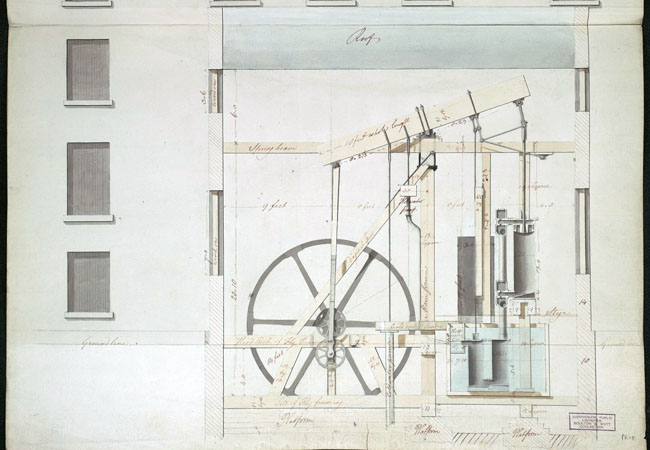Birmingham: James Watt papers in the Library of Birmingham archives have been placed on the UNESCO UK Memory of the World register – the documentary equivalent of World Heritage Sites.
The papers relate to Watt’s invention of the separate condenser and the announcement comes on International Archives Day, 9 June 2020.
The UNESCO Memory of the World register aims to preserve ‘significant documentary heritage’ across the world.
The register celebrates some of the UK’s most exceptional archive riches, and includes significant historical documents such as the Domesday Book, the Death Warrant of King Charles I and the personal archive of Sir Winston Churchill.
The Birmingham documents that have been accepted for the register are two experiment notebooks, which include the famous kettle experiment, and a series of letters from James Watt to Dr. John Roebuck, describing his modifications. Combined, the notebooks and letters serve as an insight into Watt’s methodical process of experimentation, testing and modifying, which took place over several years. On 5 January 1769 he was granted Letters Patent ‘For a Method of Lessening the Consumption of Steam and Fuel in Fire Engines’. The discovery and invention of the separate condenser greatly reduced the consumption of fuel, making the steam engine cheaper to run.
The register recognises the importance of the documentary heritage of an invention that was one of the most ‘important scientific and technological advancements of the industrial revolution’. The documents are held by Archives & Collections at the Library of Birmingham and form part of the Archives of Soho, the collective name for the records of James Watt, Matthew Boulton and the firm of Boulton and Watt.
Councillor Jayne Francis, cabinet member for education, skills and culture, said: “The Library of Birmingham contains a huge range of historically important documents, and those relating to James Watt are some of the most interesting and significant. It’s a real honour for the library and the city that UNESCO has recognised these archives in this way.”
